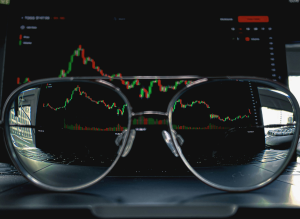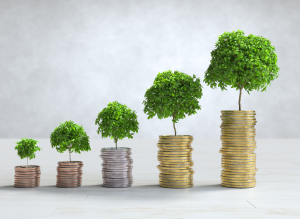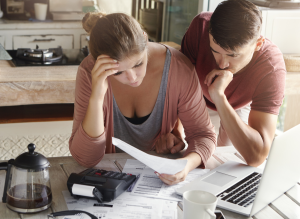Millions of people have a ritual of having a cup of coffee in the morning. You may like the taste and unique aroma of coffee. As you enjoy your coffee, it is also worth taking a quick look at the costs associated with this habit. Then, you can figure out whether it is a good habit to stick to or not. Read this guide, and we will help you find more details on it.
The Financial Costs
Let’s start with what is likely the most apparent cost of a regular coffee habit – the financial aspect. If you visit a coffee shop daily and order a basic coffee, this might cost $2-4 per cup. If we take the lower end of $2 per cup and assume you buy one coffee five days a week, that’s $10 per week, over $500 per year, and $25,000 after 50 years! That’s without even factoring in inflation – coffee prices have risen over 70% in the last 40 years.
Of course, making coffee at home brings the cost down considerably to around 25-50 cents per cup. But small daily costs still add up substantially over decades. Even just $100 per year on coffee for 50 years still equates to $5,000—enough for a vacation. Additionally, while plain black coffee may be cheap, fancier drinks like lattes, cappuccinos, or Frappuccinos often cost $4-6 each, easily doubling or tripling your total spending if purchased daily over the years.
The Health Costs
However, the financial price tag is tiny compared to the potential health costs of long-term heavy coffee consumption. Now, research on coffee’s health impact has shown a complex picture – moderate consumption may have some health benefits. But drinking more than 3-4 cups per day for years on end has been linked to several risks.
First, excessive caffeine intake’s more immediate bodily effects are headaches, irritability, anxious jitters, and disrupted sleep. Long-term effects may include high blood pressure and elevated cholesterol, increasing stroke and heart disease risks. Some studies have indicated heavy coffee intake could contribute to the onset of Parkinson’s disease or dementia later in life as well. There are also concerns about consuming very hot coffee and esophageal cancer.
Beyond physical effects, a daily coffee stop during one’s work commute can translate into less time for healthier habits—meal prepping, exercising, or simply relaxing without constant stimulation. Given how stressed the average person is already, sacrificing that little buffer for a chemical jolt could cost mental health over the long run.
The Environmental Impact
Finally, the broader environmental price of widespread coffee culture will be passed on to future generations. Coffee beans only grow in tropical regions near the equator. Yet, the top consumers are often far away – meaning there’s a massive carbon footprint from all that international shipping. There’s also a high water cost for producing coffee beans, one of the most water-intensive crops on the planet. On average, one cup takes 140 liters of H2O, leading coffee cultivation to strain local water supplies in premium regions like Brazil and Vietnam.
And as coffee shops proliferate on every urban street corner in developed nations, the waste from single-use coffee cups increases staggeringly. By some estimates, Australians alone use over a billion disposable cups per year.
While some chains now facilitate recycling or discounts for reusable mugs, it’s still common to see takeaway cups littering public spaces after the coffee is made. The combined emissions, water use, land stresses, and waste of mainstream coffee culture impact us collectively through climate change consequences down the line—the bill for which is essentially being footed by younger and future generations.
Changing the Habit
Does all this mean your daily coffee fix is fundamentally flawed or immoral? Of course not. For plenty, the social bonding, comforting ritual, or energy boost is worth the personal cost. But it’s still helpful to recognize and weigh that cost over the short and long haul rather than taking coffee for granted as any other beverage.
You need not quit coffee altogether if the prospect fills you with dread. Just being mindful by picking ethically sourced beans, sticking to a reasonable intake of 1-2 cups per day, or switching to half-caff are simple ways to moderate habit impacts. For those hoping to cut costs or lessen environmental damage, brewing at home or finding coffee shops taking sustainability measures around organic farming, shipping distance, reusable mugs, cup recycling, etc., are great starting points, too.
At its best, coffee is enjoyable and even healthy in countless lives. But no morning ritual exists without consequences – whether to our wallets, bodies, or planets. The key is drinking consciously instead of mindlessly and weighing whether each additional latte or Americano is worth the collective actual cost over time.
Seeking Out Sustainable Options
As coffee consumption continues rising globally, with over 165 million 60-kilogram bags produced yearly, the industry’s broader environmental impacts are only set to grow. However, there are glimmers of positive change from stakeholders seeking to mitigate problems and make coffee part of a sustainable future.
On the production side, groups like the International Coffee Organization have initiatives to support smallholder farmers adapting to climate change pressures. Crop diversification, agroforestry, and efficient water use systems build local communities’ resilience and aid wider ecosystem health in coffee-growing regions.
Meanwhile, consumer-facing groups like the SCAA and Fairtrade organizations are ramping up education on issues like carbon emissions, ethical working conditions for farmers, and eco-friendly certifications to help shift purchasing. Coffee drinkers today have more transparency and options to find organic, shade-grown beans shipped shorter distances when making daily coffee decisions.
From new regulations on single-use cup recycling to the proliferation of coffee roasters touting carbon-neutral or rainforest-alliance-approved beans, there are signs the industry is waking up to its impacts. The true cost of coffee may never be zero, but continued progress toward sustainability can help balance the enjoyment of our favorite morning brew with benefits for both people and the planet.






